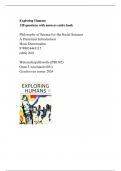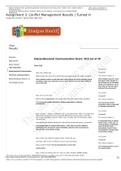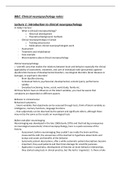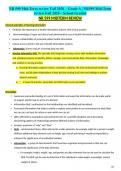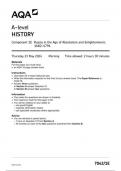Prüfung
Exploring Humans Dooremalen / Wetenschapsfilosofie PB1302 Open Universiteit - 128 questions answers entire book
- Kurs
- Hochschule
This is a comprehensive test bank with 128 questions and answers about the entire book Exploring Humans by Hans Dooremalen edition 2021. Fun topics like 'modernity', 'postmodernism' and 'technological determinism'. Love this test and really helped me to understand the book better.
[ Mehr anzeigen ]
